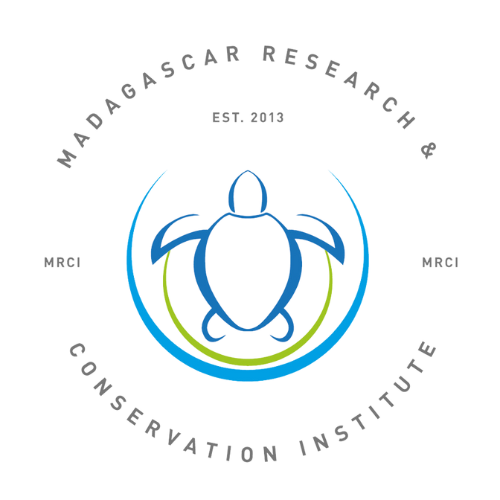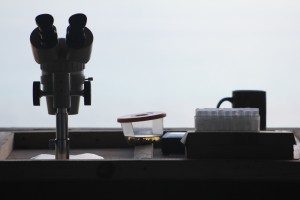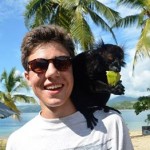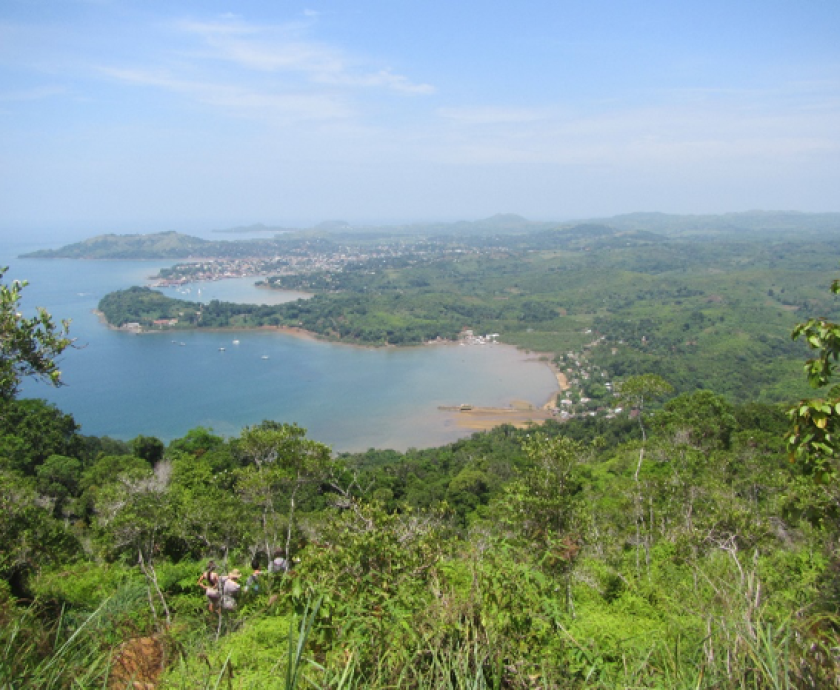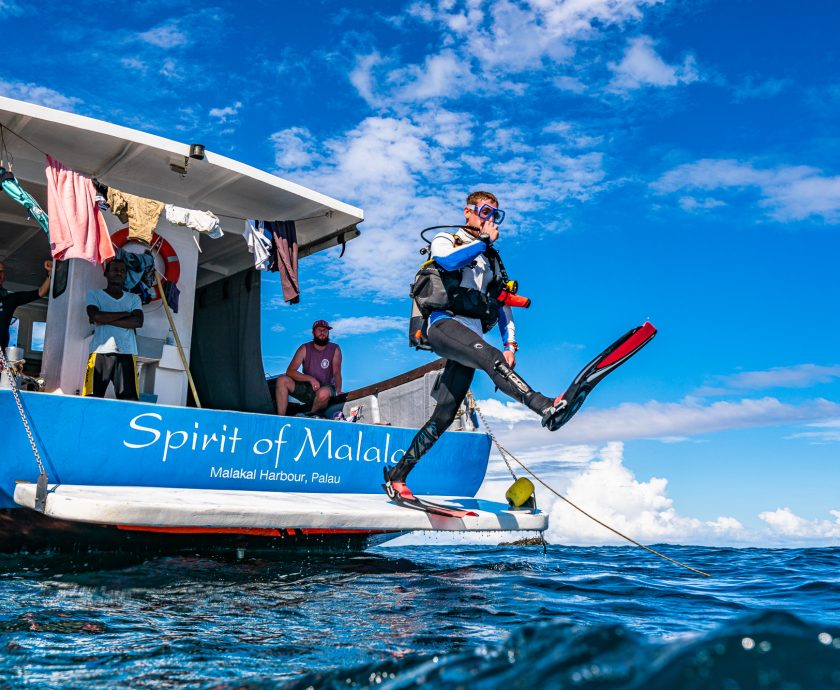For a couple of weeks in June, we were fortunate enough to have the company of Dr Andrew Polaszek, a world expert in parasitoid wasps, who came to study and hopefully discover new species of these insects on the island of Nosy Komba.
Andrew came to us from London, where he resides and works as an entomologist in the city’s Natural History Museum. His work has taken him all over the world, studying creatures which largely go unnoticed by the rest of us.
A parasitoid wasp usually lays it’s egg inside the living body of another insect to enable their larvae to develop inside the body of the host, eating the non-essential tissues whilst they 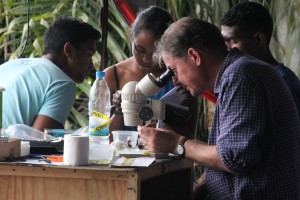 develop, after which they pupate and emerge as adult wasps ready to repeat the cycle, typically killing the host in the process.
develop, after which they pupate and emerge as adult wasps ready to repeat the cycle, typically killing the host in the process.
It was not the first time working together for Andrew and our Terrestrial Science Manager, Dan, who assisted in the identification of new species of parasitoid wasps collected from an expedition to Borneo last year. But for Anjatiana, Mandaniaina and Onja, who joined us from 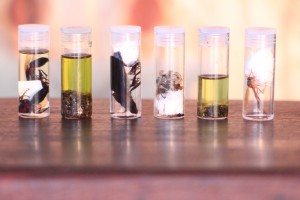 their university in Antananarivo where they are studying entomology, and some lucky forest volunteers, it was an exciting opportunity to take part in significant field work.
their university in Antananarivo where they are studying entomology, and some lucky forest volunteers, it was an exciting opportunity to take part in significant field work.
This was the first time that research has been conducted on the insects of Nosy Komba, an important task not only to glean knowledge on the species that make up our planet, but given the habitat destruction taking place in Madagascar, it is useful to know what species exist to therefore know which are being lost.
And so an ocean side laboratory was set up and days were spent sweep-netting in the surrounding forest, as well as the setting of both malaise and yellow pan traps, which provided abundant specimens to place under the microscope – a veteran piece of museum kit, whose travels had exceeded that of anybody on camp. 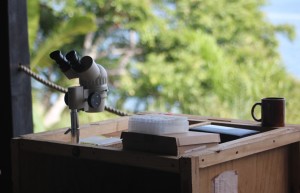
From looking at the findings here, new species have definitely been discovered although the genetic sequencing and formal naming process will take place in London in January. Needless to say we are excited to see the results!
It was a privilege to work with them all and a great reminder of the species abundance within the forests in which we live!
